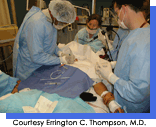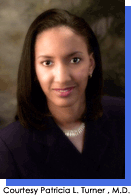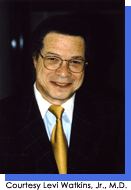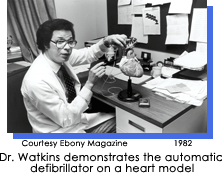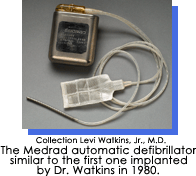 |
|
| History of Medicine | |

|
|
Opening Doors: Contemporary African American Academic Surgeons Home > New Frontiers in Academic Surgery  |
|
African American surgeons still face many challenges, but their path has been made easier by the pioneering surgeons that came before them. Among academic surgeons today, African Americans hold some of the most prestigious academic surgical positions in the United States including Danny O. Jacobs, M.D., M.P.H., chair of the department of surgery at Duke University and Selywn Vickers, M.D., chair of the department of surgery at the University of Minnesota. The tradition of excellence through performance and education continues. |
|
Dr. L.D. Britt | Dr. Malcolm V. Brock | Dr. Karyn L. Butler | Dr. Benjamin S. Carson, Sr. | Dr. Edward E. Cornwell, III | Dr. Kenneth Davis, Jr. | Dr. Sharon M. Henry | Dr. Carla M. Pugh | Dr. Velma Scantlebury | Dr. Claudia L. Thomas | Dr. Errington C. Thompson | Dr. Patricia L. Turner | Dr. Levi Watkins, Jr.
|
|
Dr. Britt is the first African-American to achieve the position of professor of surgery in the Commonwealth of Virginia. He is the Executive Director of the Society of Black Academic Surgeons as well as a member of the Board of Regents of the American College of Surgeons. Dr. Britt is a graduate of Harvard Medical School and Harvard School of Public Health. He completed his surgical residency at University Hospital and Cook County Hospital at the University of Illinois School of Medicine, and his fellowship training at the Maryland Institute for Emergency Medical Services, University of Maryland and Washington University School of Medicine, St. Louis. |
|
|
|
Dr. Brock received his medical degree and completed his surgical residency at The Johns Hopkins University School of Medicine, Johns Hopkins Hospital. |
|
|
|
Dr. Butler received her medical degree from Morehouse School of Medicine and completed her surgical training at Howard University College of Medicine. She held fellowships at Bayley-Seton Hospital, Staten Island, NY and UMD-New Jersey Medical School, Newark, NJ, and was a N.I.H. Trauma Research Fellow at the University of Colorado Health Sciences Center, Denver. |
|
|
|
Dr. Carson pioneered the first intrauterine surgical procedure to relive pressure on the brain of a hydrocephalic fetal twin in 1986. He performed the first successful separation of conjoined twins joined at the head in 1987, and was a member of the surgical team that operated on two 29 year old Iranian conjoined twins in 2003. He serves as co-director of the Johns Hopkins Cleft and Craniofacial Center and is the youngest physician to head a major division at Johns Hopkins when he became Director of Pediatric Neurosurgery in 1984 at age 33. He received his medical degree from the University of Michigan and completed his surgical residency at Johns Hopkins University Medical School. Dr. Carson is a recipient of the 2008 Presidential Medal of Freedom, the highest civilian award in the United States. |
|
|
|
Dr. Cornwell received his medical degree from Howard University College of Medicine and completed his surgical training at Los Angeles County University of Southern California Medical Center and Maryland Institute for Emergency Medical Services, Baltimore. |
|
|
|
Dr. Davis received his medical degree from St. Louis University School of Medicine and completed his surgical training at Harlem Hospital in New York. |
|
|
|
Dr. Henry received her medical degree from the University of Maryland School of Medicine and completed her surgical residency at the State University of New York Health Sciences Center in Brooklyn where she also served as assistant professor of surgery. She completed her surgical critical care fellowship at the University of Minnesota. |
|
|
|
Dr. Pugh received her medical degree and surgical training at Howard University College of Medicine, and received a Ph.D. in Education from Stanford University. |
|
|
|
Dr. Scantlebury received her medical degree from Columbia University College of Physicians and Surgeons and completed her internship and residency at Harlem Hospital Center in New York. She was a clinical fellow in transplant surgery at the University of Pittsburgh before becoming an assistant professor in 1989 and then an associate professor. In 2002, Dr. Scantlebury was appointed professor of surgery and director of the University of South Alabama's Gulf Coast Regional Transplant Center. An active educator in the field of African American organ donation, Dr. Scantlebury has served as a member of the board for the American Society of Minority Health and Transplant Professionals and as a spokesperson for Linkages to Life, an initiative to encourage African Americans to become organ donors. |
|
|
|
Dr. Thomas received her medical degree at Johns Hopkins University School of Medicine and completed her orthopaedic surgical residency at Yale University – New Haven Hospital. She completed a trauma fellowship at Maryland Institute for Emergency Medical Services, University of Maryland, Baltimore. |
|
|
|
Dr. Thompson received his medical degree from Southwestern Medical School in Dallas and completed his surgical training at Louisiana State University, Shreveport. |
|
|
|
|
|
|
|
Dr. Watkins grew up in segregated Montgomery, Alabama, the son of well-educated parents who emphasized a good education and a strong work ethic. As a member Martin Luther King, Jr.'s Dexter Avenue Baptist Church, Watkins learned spirituality and the principles of humanity and participated in the early civil rights movement under Dr. King's leadership. As the first African American student accepted at Vanderbilt University School of Medicine in Nashville, Tennessee, he was subjected to four years of racial prejudice, and in 1970, became the first black graduate. Today, his portrait is displayed at the university, a professorship is named in his honor, and the Levi Watkins, Jr. Lecture on Diversity in Medical Education is an annual event. Dr. Watkins spent much of his medical career at Johns Hopkins University School of Medicine. He completed his internship and surgical residency at Hopkins and went on to become the first African American chief resident, professor of cardiac surgery, and associate dean. |
Last reviewed: 12 June 2007
Last updated: 02 July 2008
First published: 13 November 2006
Metadata| Permanence level: Permanent: Stable Content
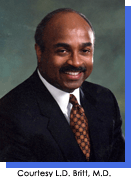 Dr. L.D. Britt is a general surgeon, professor of surgery, and chair of the department of surgery at Eastern Virginia Medical School. Dr. Britt is a leader in academic surgery and has received numerous awards for his outstanding contributions to medical education including the Robert J. Glaser Distinguished Educator Award, the highest teaching award in medicine given by the Association of American Medical Colleges.
Dr. L.D. Britt is a general surgeon, professor of surgery, and chair of the department of surgery at Eastern Virginia Medical School. Dr. Britt is a leader in academic surgery and has received numerous awards for his outstanding contributions to medical education including the Robert J. Glaser Distinguished Educator Award, the highest teaching award in medicine given by the Association of American Medical Colleges.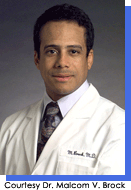

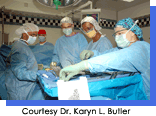
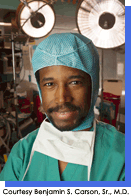

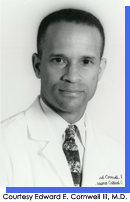
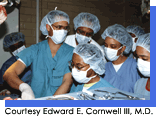
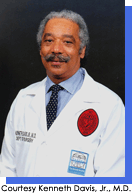
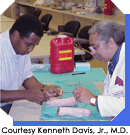
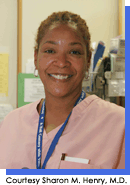
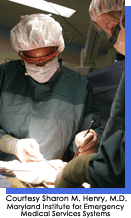

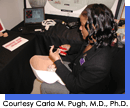
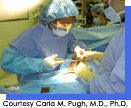
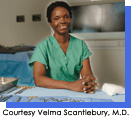

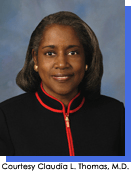
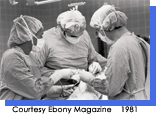
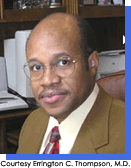 Dr. Errington C. Thompson is a trauma surgeon and associate director of trauma/surgical critical care at Mission Hospital in Asheville, North Carolina. He previously served as clinical assistant professor and director of trauma at Louisiana State University Medical Center in Shreveport. As a member of the Society of Black Academic Surgeons he serves on the Executive Committee.
Dr. Errington C. Thompson is a trauma surgeon and associate director of trauma/surgical critical care at Mission Hospital in Asheville, North Carolina. He previously served as clinical assistant professor and director of trauma at Louisiana State University Medical Center in Shreveport. As a member of the Society of Black Academic Surgeons he serves on the Executive Committee.